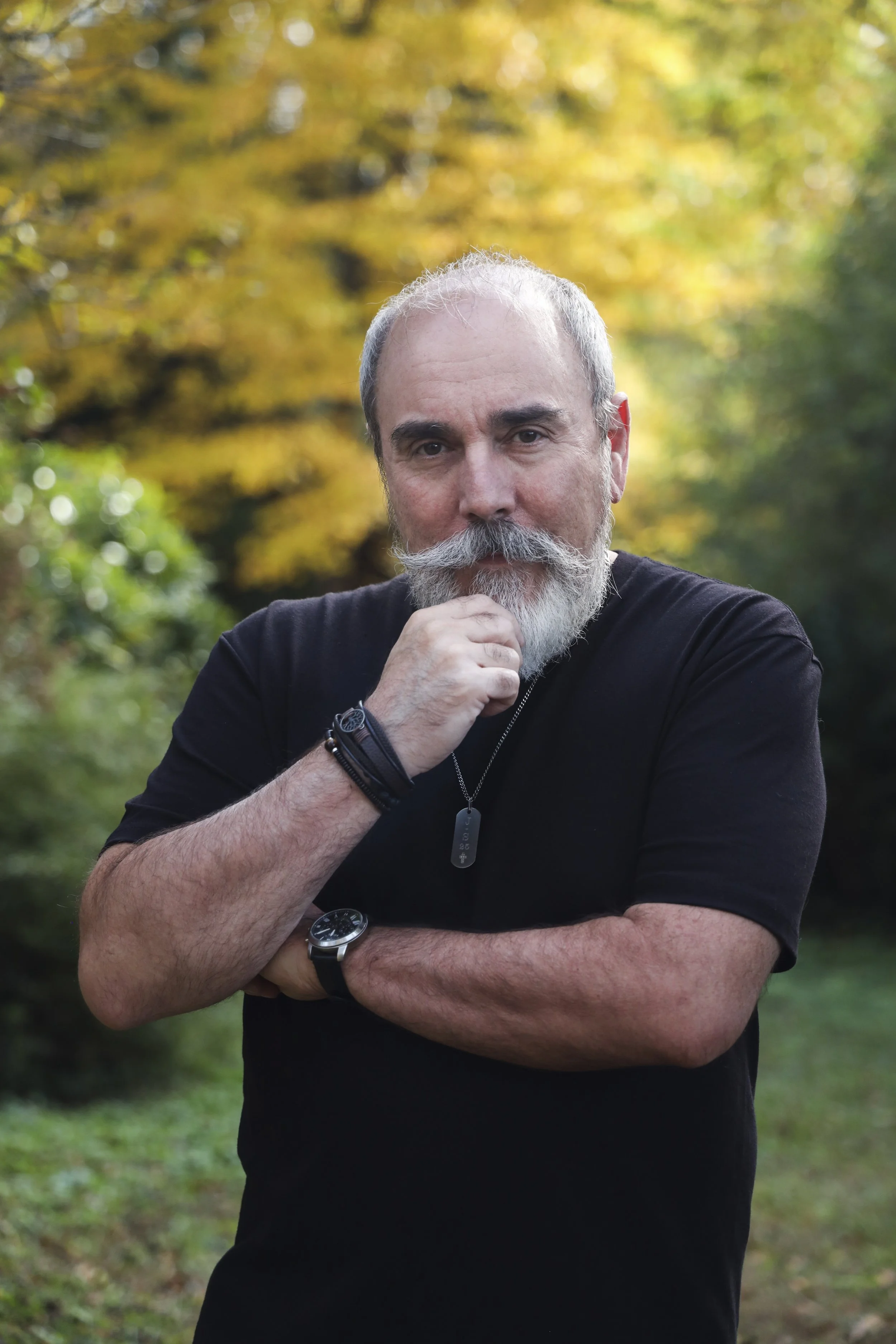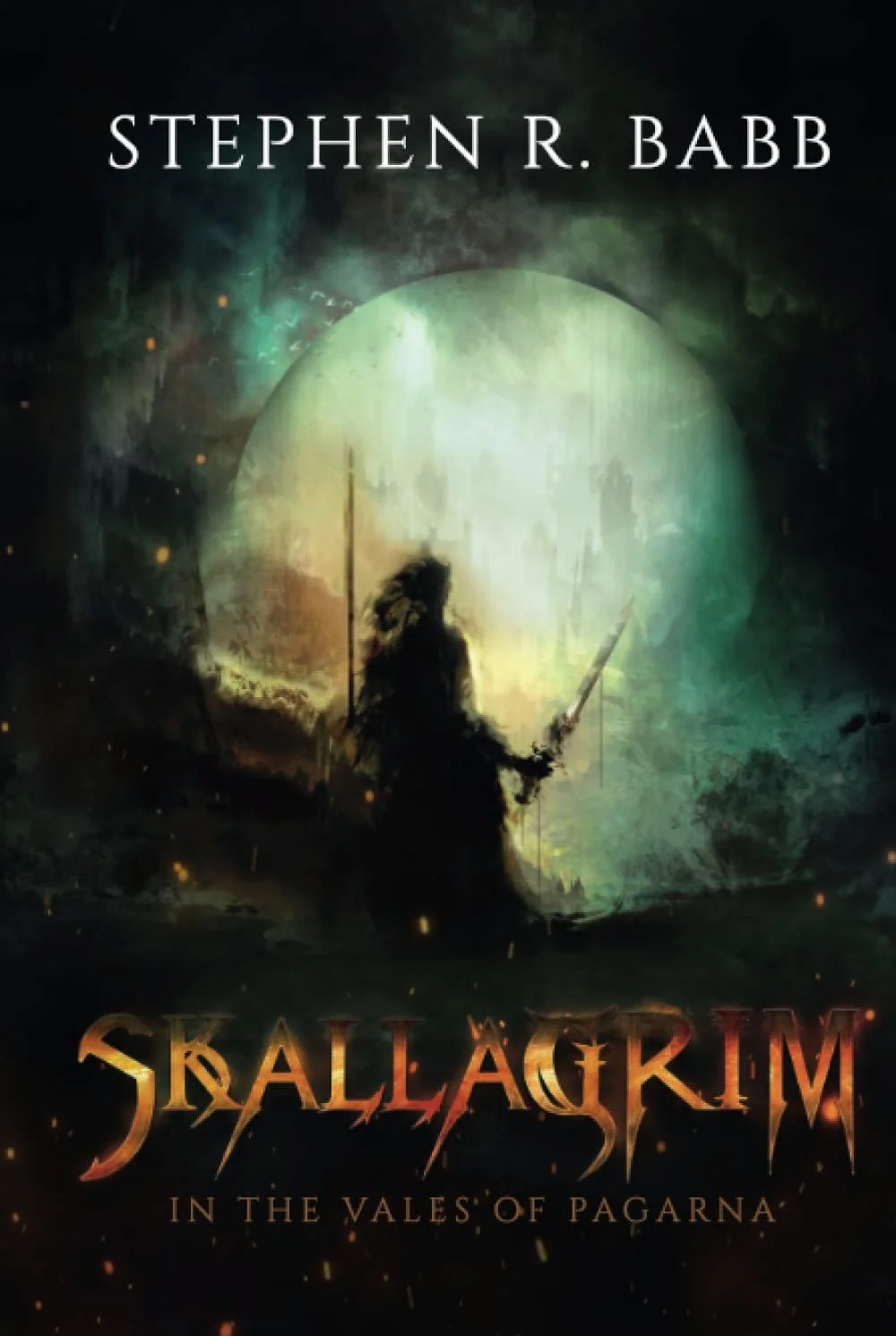Independent Author Spotlight: Stephen R. Babb
Please introduce yourself and tell us about your background as a writer.
I’m Stephen R. Babb, though I go by Steve. I’m best known as the bassist/keyboardist, co-founder, and producer of the prog rock group Glass Hammer. We’ve over twenty albums to our credit and have been at it since 1993. I’ve also been the primary lyricist for the group. Much of our work is fantasy-themed, especially the Skallagrim “Trilogy” of albums we just completed.
I’ve also written for magazines, the most noteworthy of which was Stratos in the mid-90s and early 2000s. I was a featured columnist under two pen names and did travel pieces and reviews.
In 2005 I penned the epic poem, The Lay Of Lirazel, to accompany a double-album project called The Inconsolable Secret. That, and two other Tolkien-influenced albums, won me the Tolkien Society’s Imperishable Flame Award. I released The Lay Of Lirazel in book form in 2014.
In 2022 I released my first full-length novel, Skallagrim – In The Vales Of Pagarna, based on the character I created for the Skallagrim albums. He’s the “thief with the screaming sword” who has lost both his memory and the love of his life. I’m working on Book II now and hope to release it this fall.
What are the most prominent influences on your writing? How do you incorporate those influences without being derivative?
My first literary influence was Tolkien. I’m sure he’s influenced my writing more than any other. Following that, C. S. Lewis, H. P. Lovecraft, Lord Dunsany, and Clark Ashton Smith (and probably a dozen or so more!)
As to the second question, I’d like to think I’ve not been derivative. However, I occasionally give a nod to my influences, sometimes in the naming of a character or in trying to capture their style in a particular scene or descriptive passage.
One notable thing about those influences I named is that their worldviews are completely opposite. Two (Tolkien / Lewis) have a hopeful view of how things will ultimately play out for mankind. Lovecraft’s outlook is quite grim!
Though my writing flirts with Tolkien’s optimism (it’s there if you look hard), my work is much darker than his. And while I don’t embrace Lovecraft’s cosmicism, I do love the dread it inspires and all the tentacled horrors that come with it! When I combine those optimistic / pessimistic influences in my writing, I hope the result comes off as original.
I love this quote by Lewis and have made it my motto when it comes to writing music, lyrics, and stories. “Even in literature and art, no man who bothers about originality will ever be original: whereas if you simply try to tell the truth (without caring two pence how often it has been told before) you will, nine times out of ten, become original without ever having noticed it.”
With self-publishing easier than ever, there are tons of books being released every day. What makes your work stand out from the crowd? What can readers get out of your work that they can’t from anyone else?
I describe Skallagrim’s story as grim, gritty, sword and sorcery with moments of pure prose and an overarching sense of the transcendent. It’s told from a life-long musician’s perspective; as such, I’m told it has a very musical feel. As odd as it may seem (to those who’ve read it), it’s based on my own experiences. (Of course I never battled ghouls in a haunted forest, but heck, we’ve all known a few.)
Regardless, even though Skallagrim’s tale is a fantasy, its themes will ring true to many readers. I’m writing about despair, horror, evil, death, and the loss of joy, but ultimately about hope. It seems the stuff of epic fantasy rather than sword and sorcery, but there you are! I’ve not seen or read another sword and sorcery story quite like it. Hopefully, readers will pick up on this uniqueness and enjoy it.
To put it another way, imagine Bernard Cornwell’s action and battle scenes combined with the eldritch creepiness of Lovecraft and Clark Ashton Smith. Toss in the prose of Dunsany and Tolkien. Take all of that and weave a fantasy-horror story around a conflicted character who is both lovesick and scared out of his mind. Oh yes, give him a freakish, sentient sword that falls from the sky, then hurl him into a wilderness full of ancient horrors. If that sounds unique, then please give my book a try!
Many authors say marketing is one of their biggest challenges. What tactics have you found to be most effective for getting your name out there?
I’ve spent decades marketing my band, Glass Hammer. Fortunately for me, we have thousands of fans who had followed Skallagrim’s tale in our albums, so I had a built-in audience for the book release. Several rock magazines around the world picked up on the story, too, so that didn’t hurt!
Beyond that, I’m concentrating more on writing (while still having to produce and market albums) than marketing my writing.
With my writing career, patience is the key for me, as I’m in it for the long haul. When I’m done, there’ll be at least four books in the Skallagrim series, maybe five. Then I’ll market to readers who love a good series.
My best advice is to write the story you HAVE to tell. That’s far more important than marketing. However, and I speak from years of music business experience, if getting your book read by thousands of readers matters to you, then be prepared to spend as much time telling people about it as you do writing it. Get reviews! Make contacts in the writing world. Get people talking. Have a passion for sales. Nobody is going to do it for you! Get busy!
How much do your audience’s expectations factor in to what you write? Does this ever cause you to hold back from experimenting?
I see very little difference in the music and lyrics that I write than the books I’m working on. So I’ll answer that question based on my experience with Glass Hammer. I always hope our fans will love the next album, and hold my breath each time I release one. I worry about what they’ll think. But (and this is a big but) the worry never stops me from creating what I want and need to create.
It’s the same with my first Skallagrim novel. I wondered if I’d gone too far, if readers would just shake their heads in confusion and speculate on my state of mind! And before I’d even found out, I was plowing into the sequel. So, I care, but I don’t care.
Readers (of decent books) would know if an author was holding back. I think they’d feel cheated. So, I’m honest in my writing and hope it comes across to readers.
Have you had any new stories published recently? Are you currently working on any?
I see all these sword and sorcery publications and wish I had the time to contribute. Each time I see that one is taking submissions, I pretend for a few days that, this time, I’m going to take time off from everything else and write a short story—get it published! I’ve got lots of ideas for short stories. But inevitably, I go back to my recording studio and start on a new song or get the laptop out and write the next chapter of a Skallagrim book.
So, the short answer is no! But one day!
Name one newer and one older book you have read and enjoyed recently. (“Newer” meaning from the past year or so, and “older” meaning written before 1980.)
New: Sharpe’s Assassin by Bernard Cornwell. I’m a big fan of Sharpe and love Napoleonic war fiction.
Old: The Return Of The Sorcerer: The Best Of Clark Ashton Smith. I’ve only recently discovered Smith’s writings and have put him on a pedestal alongside Lovecraft. Give him the time; he can put you under a spell like no other author.
Any final words?
It’s a great time to write sword and sorcery! And, it’s a great time to read it with so many new writers coming to the genre. Show your support and be sure to leave five star reviews for your favorites.


